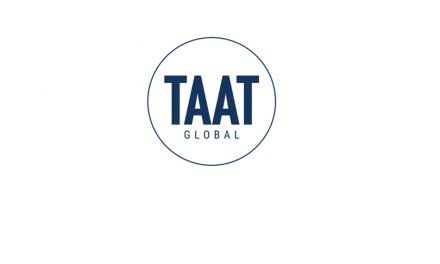After President Trump announced last week its intention to impose higher tariffs on all imports from Mexico, the US equities market shivered, which caused the S&P 500, Dow Jones and Nasdaq indices to spiral down. The direct blow has been the automobile sector, which traded at record-lows as investors weighed in the prospects of the tariffs.
As announced by the White House, the US government will be charging 5% duties on Mexican imports starting June. Monthly until October, it will continue to add 5% to the tariff rate unless Mexican authorities take action.
President Trump aims to curb illegal migration. For the last 25 years, Mexico has not been pro-active in controlling the number of illegal migrants coming to the US territory. In hundreds of thousands, the migrants flock yearly and take advantage of privileges meant to be enjoyed by Americans. President Trump clearly expressed this dissatisfaction and hence said that taxes on trade imports could be a ‘modest approach’ in handling the situation on border control.
Following the news, US car industries were rattled as reflected in Bloomberg’s World Auto Manufacturing Index, which dropped by 2.2% at a level last seen in July 2016. Known vehicle brands like Ford, Toyota, and Volkswagen shaved around USD 17 billion in market value during trading last Friday. Mazda company, which heavily relies on parts and manufacturing in Japan and Mexico, also had its shares decline at levels last seen in 2013.
Other countries with businesses related to the US and Mexico were also affected. Shares of Japan’s Toyota and South Korea’s Kia Motors declined further than the benchmark. An analyst from SK Securities estimated that around 80% to 90% of its cars from Mexico are shipped to the US. In Germany, BMW shares decreased at the lowest since 2012. Likewise, Canada’s Magna International’s shares declined by 5.8%. The company has more than 29,000 staff in Mexico. Swedish companies that sell vehicle accessories such as Dometic Group and Autoliv Inc. experienced a slump in shares by 6.5% and 7.8% respectively.
General Motors, Fiat Chrysler and Ford experienced a 4% intraday plummet. Among other automobile companies, these three appear to be affected most. For General Motors, a majority of its light vehicles are made in Mexico (Eighty-seven percent of its 281,475 vehicles were imported from Mexico to the US). As such, an increase in tariffs to 25% will directly affect their USD 9 billion retail revenues. Analysts predict that this could add USD 9,441 cost per vehicle. Higher cost hurts consumers who are looking at the Chevrolet Silverado Pick-up, General Motor’s most imported vehicle from Mexico. Current prices are at USD 48,681.
Vehicles built in Mexico by Fiat Chrysler totaled 132,380 units that generate around USD 4.9 billion a year. The companies’ top two large vehicles, called the RAM 2500 and Jeep Compass, compose 67% of its total units being sold in the US market. They price higher than other vehicles within their product line. With retail prices averaging at USD 53,731 and USD 28,727 respectively, they also generate the most revenues for the company at USD 3.8 billion combined. Slapping 25% tariffs on the vehicles would add USD 9,200 per vehicle.
Another automobile business reliant on Mexico imports is Ford. Compared to General Motors, Toyota and Fiat Chrysler, its retail revenue year-to-date stands only at USD 2.6 billion. However, the company faces higher risk from the new import policies since 93%, or 108,845 units of its total light-vehicle production come from Mexico. In this product line are the Ford Fusion (mid-sized car), Ford Fiesta (compact car) and Lincoln MKZ (Entry luxury car). Due to the increased likelihood that prices will ramp up, there is a potential change in consumer behavior towards a preference for light trucks rather than cars. The shift in investor attitude will further squeeze the car sales in the US, which has declined 9% in April, and 13% in 2018.
As tensions rise, the US Commerce Department has received several dozen complaints from car manufacturers and distributors. Among them are Mazda and Toyota.
Even Japan appears to catch on with the pressure. Last week, Prime Minister Abe met with President Trump, who introduced him to Emperor Naruhito. The meeting was the first time an international delegate met with the emperor. Many predict that Japan could be the next target in this looming tariff battle. Next, to the US, Japan is the second country that produces most of its vehicle from Mexico. In 2018, 58% of the output was shipped to the US.
However, Japan has more time to prepare for the changes, since the US government has recently delayed for six months, its 25% tariff on passenger vehicles.
This week US and Mexican officials are set to meet to negotiate that will hopefully set the two countries in the agreement.













